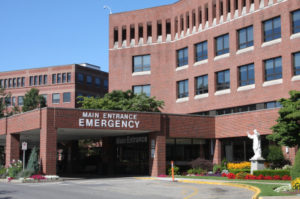PA Seeks Fair Share for Fair Care
Pennsylvania is asking the federal government to continue full funding of the health insurance program for hard-to-insure people created under the Affordable Care Act.
PA Fair Care currently provides health insurance for 6900 Pennsylvanians with medical conditions that usually make health insurance too expensive for them to purchase. The federal government allocated $5 billion for the program, but even though nation-wide enrollment is less than one-third of what the Obama administration estimated, the program has expended most of its initial appropriation and the federal government has asked states to stop enrolling new members and shift existing members into the federal version of the program or risk liability for costs the federal government will no longer subsidize.
Read more about PA Fair Care, why the program is in trouble, and what the state and federal government are trying to do about it in this Pittsburgh Post-Gazette report .
.





